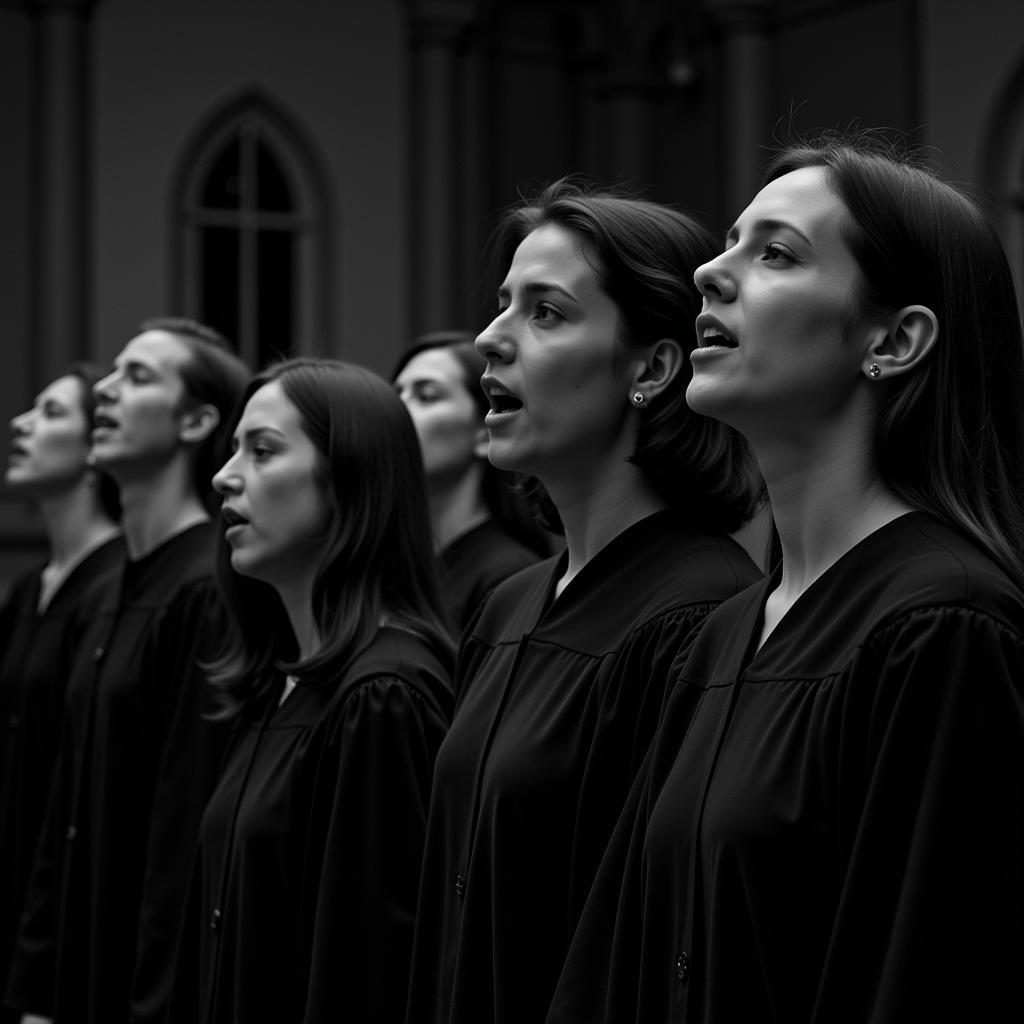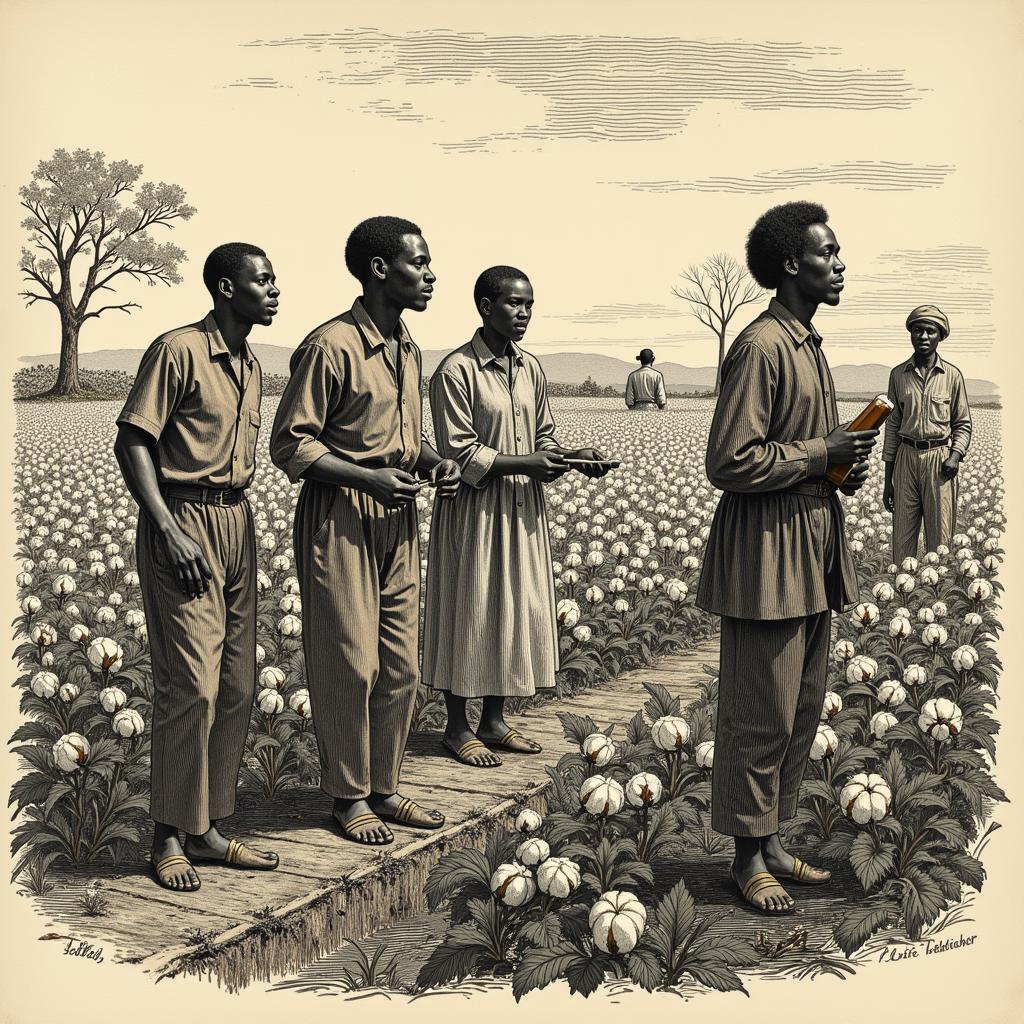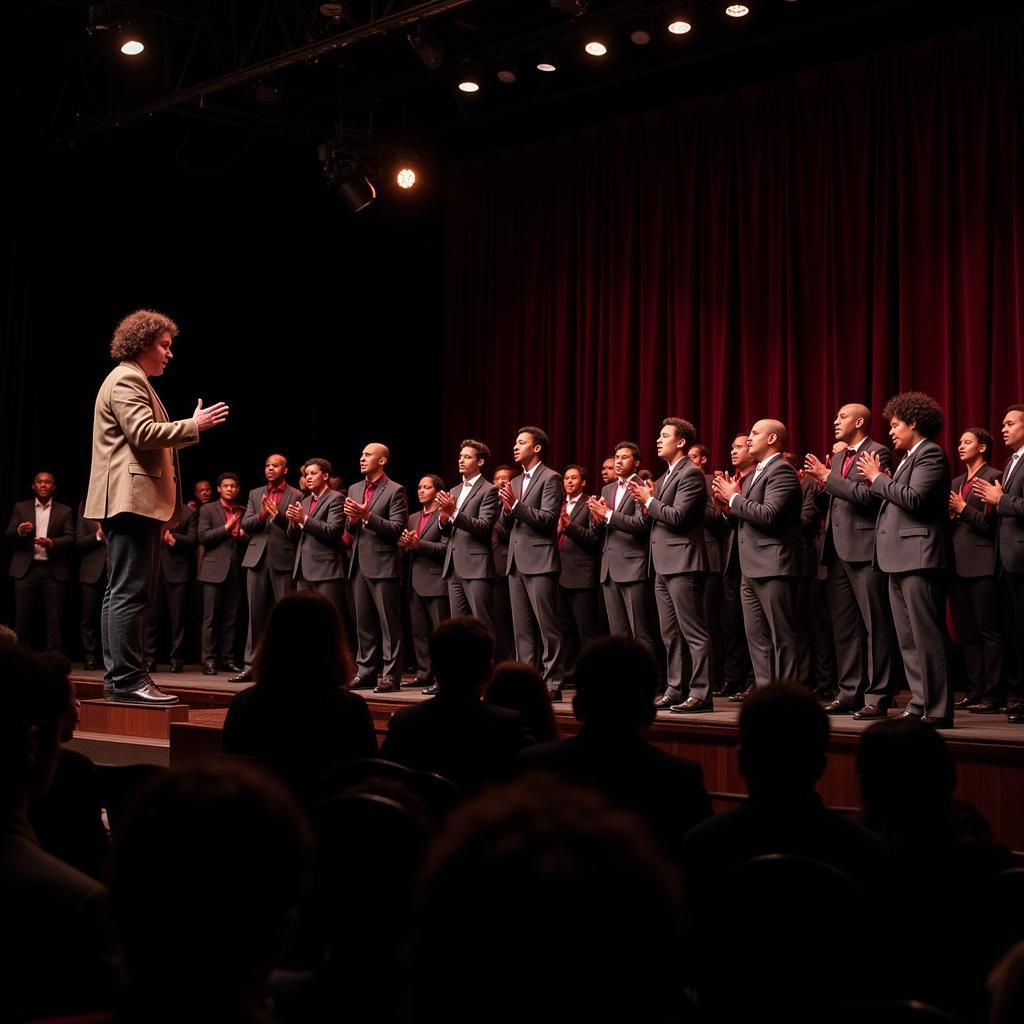African American Spirituals: Songs of Sorrow, Resilience, and Hope
African American Spirituals are a powerful and enduring musical tradition that emerged from the crucible of slavery in the United States. These soul-stirring songs, infused with biblical imagery and coded language, served as a source of solace, resistance, and hope for African Americans during a time of unimaginable hardship.
 A choir singing African American spirituals
A choir singing African American spirituals
Roots in Slavery and the Transatlantic Slave Trade
The transatlantic slave trade forcibly transported millions of Africans to the Americas, stripping them of their freedom, culture, and identity. Within this brutal system of oppression, music became a lifeline. Forbidden to speak their native languages or practice their own religions, enslaved Africans found solace and expression in song. Spirituals, born out of this painful history, became a way to communicate, to resist, and to keep hope alive.
The Language of Hidden Meanings
Spirituals were more than just religious songs; they were also a form of coded communication. The lyrics, often drawing upon biblical stories of exodus and liberation, carried double meanings. Songs like “Go Down, Moses” and “Steal Away to Jesus” could be interpreted literally as expressions of religious faith, but they also carried powerful messages of freedom and resistance. The “Promised Land” could refer to heaven, but it also symbolized the North and the hope of escaping slavery.
 Enslaved Africans singing spirituals in a cotton field
Enslaved Africans singing spirituals in a cotton field
Musical Characteristics: From Call and Response to Improvisation
African American spirituals are characterized by their distinctive musical features, many of which are rooted in West African musical traditions. The call-and-response pattern, where a leader sings a line and the group responds, is a hallmark of spirituals. This dynamic exchange creates a sense of community and shared experience. Improvisation, another key element, allows for individual expression and emotional depth within the performance.
From Sorrow to Triumph: Themes of Faith, Freedom, and Justice
Spirituals explore a wide range of themes that reflect the lived experiences of African Americans. Sorrow and lament over the horrors of slavery find expression in songs like “Sometimes I Feel Like a Motherless Child.” The yearning for freedom and justice is palpable in songs like “Oh, Freedom!” and “Ain’t Gonna Let Nobody Turn Me ‘Round.” Through it all, faith in God remains a constant source of comfort and hope, as expressed in songs like “He’s Got the Whole World in His Hands” and “Amazing Grace.”
The Enduring Legacy of African American Spirituals
After the Civil War and the end of slavery, spirituals continued to evolve and inspire. They influenced the development of gospel music, blues, and jazz, becoming cornerstones of American musical heritage. Today, spirituals are recognized as a testament to the resilience of the human spirit in the face of adversity. They continue to be performed and cherished around the world, reminding us of the power of music to heal, to inspire, and to promote social change.
 A modern-day performance of African American spirituals
A modern-day performance of African American spirituals
Conclusion
African American spirituals stand as a powerful testament to the resilience of the human spirit. Born out of the unimaginable suffering of slavery, these songs of sorrow, faith, and hope continue to resonate deeply today. They remind us of the power of music to heal, to inspire, and to fuel the ongoing struggle for freedom and justice.

